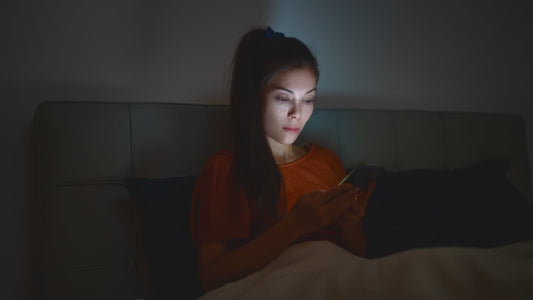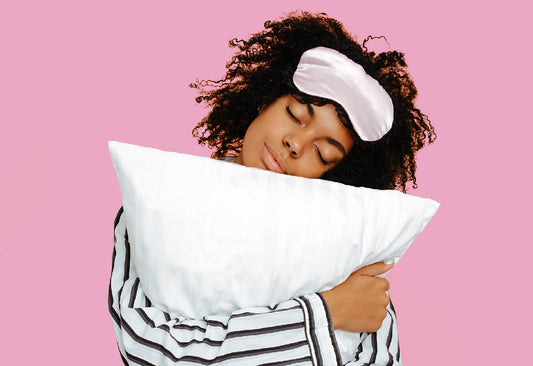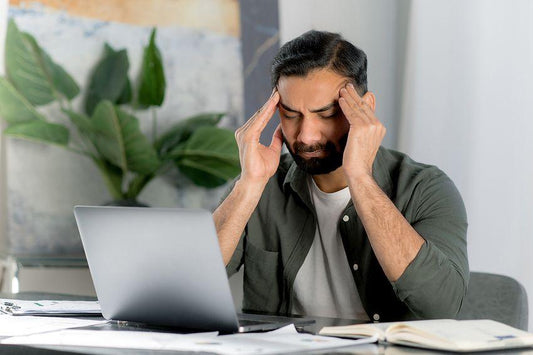A fun, late night out on the town tends to go hand-in-hand with drinking alcohol. During such nights, the question of “sleep quality” is best left unasked, because we already know the answer: we’re simply not getting good sleep tonight... if we’re getting any sleep at all.
However, we don’t necessarily attribute this to alcohol. Instead, we blame the “staying up late” aspect of going out for drinks.
If anything, it seems like we sleep better after binge-drinking.
This perhaps explains why many people, even during nights when they’re staying in, have themselves a “night-cap” before hitting the hay. Just a quick drink (or two or three) to take the edge off the day and get a good night’s rest.
Yet, while this may help us fall asleep quicker, research suggests that drinking alcohol may actually impair your sleep quality. What’s worse: adding a melatonin supplement to the mix as a sort of “quick-fix” to alcohol’s sleep-disruptive issues may not go exactly as planned.
With that in mind, in this article, we’re addressing the question of whether or not it’s safe to mix melatonin and alcohol. But before diving into all of that, let’s first address the basics:
What is Melatonin?
Naturally secreted by the pineal gland to encourage sleep onset, melatonin is a hormone that’s strongly associated with the sleep-wake cycle, specifically the “sleep” part.
What’s important to note here is that while melatonin secretion plays a key role in establishing a healthy sleep-wake cycle (i.e., your body’s internal “circadian rhythm” 24/7 clock), the secretion of melatonin is largely dependent on the external rhythms of sunlight.
In other words, when the sun goes down, melatonin activity goes up.
This best explains why melatonin supplementation has only increased in popularity in recent years: as our homes continue to fill with electric technology (i.e., TVs, computers, smartphones, etc.), our nights are increasingly well-lit with sleep-disruptive blue light rays—the same type of light emitted from the sun.
This uninterrupted technology-mediated exposure to blue light, which in the natural world exclusively meant “daylight,” messes with our natural melatonin secretion.
And when you mess with melatonin, you mess with your entire circadian rhythm—your sleep-wake cycle—contributing to a wide, diverse range of metabolic impairments and performance issues.1
Of course, supplementing melatonin may significantly help combat the melatonin-disruptive effects of staring at our phone screens too late at night.
But what about alcohol?
The Relationship Between Alcohol and Sleep Quality
Virtually no one associates alcohol with health anymore.
Even that old saw about “a glass of wine per day is good for your heart!” is reasonably mocked by health and fitness enthusiasts —rarely does anyone ever have just ONE drink.
And, yet, many still believe that drinking alcohol can help one get better sleep. This isn’t unreasonable: research does show that drinking alcohol acutely improves sleep onset,2 meaning that, say, having a glass of wine before bedtime may help you get to sleep faster.
...However.
While alcohol may provide some early-night advantages to sleep quality, that same research shows that alcohol seems to disrupt sleep quality later in the night, ultimately promoting greater sleep disturbances for less overnight rest and recovery.
And the relationship between a drinking problem and a sleep problem seems to be mutual: excess drinking contributes to poor sleep quality and vice versa.3
You Booze, You Lose: Drinking May Impair REM (Rapid Eye Movement) Sleep
During sleep, the brain transitions through five general sleep phases, the last of which we call REM (rapid eye movement) sleep, the phase most associated with dreaming -- as well as learning, mood, and memory formation.
Though the brain is almost as active during REM as it is while we’re awake, this sleep stage is believed to be restorative, especially for cognitive performance.
Notably, REM disruptions seem to correlate with daytime drowsiness and inattention. This makes alcohol’s negative effects on sleep, particularly REM sleep, especially worrisome:
- As one group of researchers noted in a 2013 review on alcohol and sleep, the “onset of the first REM sleep period is significantly delayed at all doses and appears to be the most recognizable effect of alcohol on REM sleep followed by the reduction in total night REM sleep.”4
Is It Safe to Mix Melatonin and Alcohol?
Odds are if you’re only drinking a little alcohol and taking a reasonable amount of melatonin, you’ll be fine. If anything, alcohol may impair the full benefits of melatonin supplementation, essentially reducing the overall effects of melatonin — let alone any possible side effects.
This is somewhat corroborated by the finding that consuming alcohol seems to suppress the natural secretion of melatonin in the body.5 With this info, it wouldn’t be too difficult to justify taking a melatonin supplement after drinking to sort of “make up for the difference.”
But as it stands, it’s generally considered unsafe to mix melatonin and alcohol, especially if you’re looking to consume large amounts of either. At best, alcohol disrupts the efficacy of melatonin, making your melatonin supplement a waste of time and money.
At worst, combining alcohol with melatonin may result in harmful side effects, of which there are some reports.
Potential Side Effects of Combining Melatonin and Alcohol
Alcohol suppresses the activity of natural melatonin, but does it do the same for melatonin supplements? Or does alcohol actually strengthen the effects of melatonin up to a dangerous level of sedation?
Until we see more research on the combination, it’s difficult to say. All the same, some of the reported side effects of combining melatonin and alcohol include:
- Excessive drowsiness
- Dizziness
- Trouble breathing
- Daytime anxiety/irritability
- Exacerbated hangover
- Inability to think properly
- Overall poorer sleep quality
Obviously, if you’re taking melatonin, you’re likely trying to sleep. But it’s worth noting that mixing melatonin and alcohol does run the possible risk of unwanted passing out.
How to Take Melatonin for Sleep
Knowing now that it’s best to avoid mixing alcohol and melatonin, the best way to boost your sleep quality and overnight recovery is to limit your alcohol content and take a reasonable amount of melatonin before falling asleep.
Considering the correlation between excessive alcohol consumption and sleep deprivation, taking melatonin to improve your sleep quality may also have the additional benefit of improving your relationship to alcohol altogether.
At the least, if you’re going to bed at a reasonable hour and actually falling asleep, you’re not up boozing away like an insomniac in front of the TV, the computer screen, etc., etc.
Instead, you’re getting good sleep to wake up and have a good day (that you won’t have to anxiously keep out of mind by stuffing your face in the bottle).
Consider this one of those rare win-win’s.
Dosage Notes
Peruse through the over-the-counter supplement aisle and you’ll find melatonin dosages ranging from 3mg to 6mg — and sometimes even more. For many sleep aid supplements, 3mg melatonin is pretty typical… however, it’s not the best.
In the case of melatonin, more isn’t always better. Really, the ideal pre-sleep dosage is closer to 0.3mg melatonin per serving than 3mg melatonin.6
Not only does such a smaller dosage lessen the likelihood of the melatonin “hangover” effect in the morning, but it seems to also work better at improving healthy, restorative sleep quality over higher melatonin dosages, upwards of 3mg+ per serving.
Conclusion
Though it may help you fall asleep quicker, alcohol is not a true sleep aid. Ultimately, habitually drinking before bed only gradually impairs your sleep quality and overall energy levels, resulting in lesser and lesser daytime performance.
And, as everyone knows, the less accomplished you feel during the daytime, the more likely you are to turn towards the bottle during the nighttime.
Instead, swap the pre-sleep booze for some pre-sleep melatonin. Taken nightly, melatonin is a safe, natural sleep aid that can help set a firmer sleep-wake foundation for a healthier circadian rhythm and all-around healthier day-to-day decision-making.
References
- Tähkämö L et al. Systematic review of light exposure impact on human circadian rhythm. Chronobiol Int. 2019 Feb; 36(2): 151-170.
- Colrain IM et al. Alcohol and the Sleeping Brain. Handb Clin Neurol. 2014; 125: 415-431.
- Stein MD, Friedmann PD. Disturbed Sleep and Its Relationship to Alcohol Use. Subst Abus. 2005 Mar; 26(1): 1-13.
- Ebrahim IO et al. Alcohol and sleep I: effects on normal sleep. Alcohol Clin Exp Res. 2013 Apr; 37(4): 539-49.
- Rupp TL et al. Evening alcohol suppresses salivary melatonin in young adults. Chronobiol Int. 2007; 24(3): 463-70.
- Zhdanova IV et al. Effects of low oral doses of melatonin, given 2-4 hours before habitual bedtime, on sleep in normal young humans. Sleep. 1996 Jun; 19(5): 423-31.















